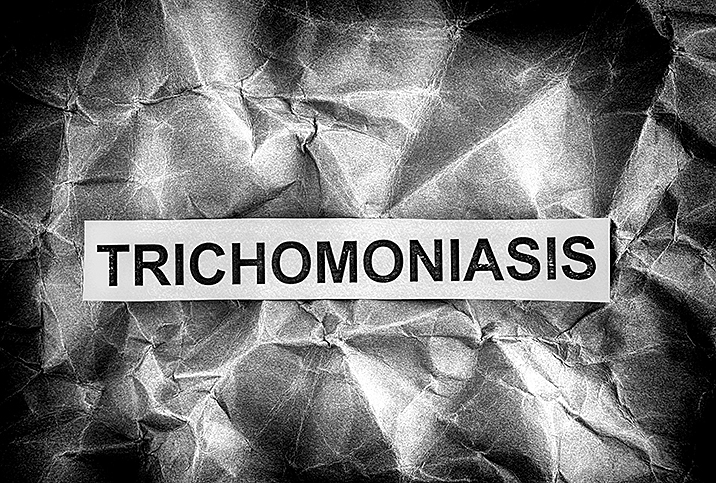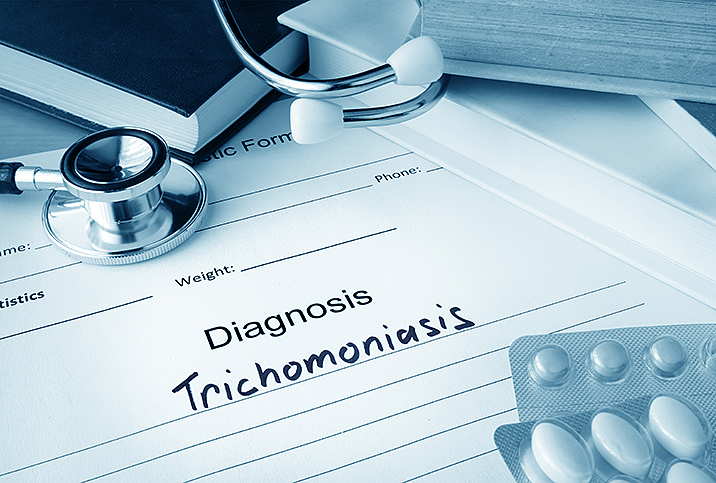Why Aren’t We All Tested for Trichomoniasis?

Trichomoniasis, an extremely common sexually transmitted disease that you might not hear much about, affects an estimated 3.7 million people in the United States.
Despite its prevalence, chances are you haven’t been tested for trichomoniasis. It’s not included in routine screening guidelines, and most people with trichomoniasis don’t experience any symptoms. However, diagnostic testing and treatment are still important, especially for pregnant women, for numerous reasons.
What is trichomoniasis?
Trichomoniasis is a sexually transmitted disease (STD) caused by a parasite called Trichomonas vaginalis. You can contract the disease after having vaginal, oral or anal sexual intercourse with an infected partner.
Trichomoniasis, sometimes called “trich,” is more common among women than men, affecting more than 2 million U.S. women ages 14 to 49. Your risk of contracting the disease increases if you have multiple sexual partners, sexual intercourse without a condom, a history of sexually transmitted infections (STIs) or a previous trichomoniasis diagnosis.
If you’re at risk of getting an STD, testing is important, even if you don’t have any symptoms, and treatment, as needed, is vital.
Symptoms & screenings
Only about 30 percent of people who contract trichomoniasis experience any signs and symptoms of having it. If you do get symptoms, they often appear five to 28 days after exposure, and men and women can expect some similar and different symptoms.
Women
Women with trichomoniasis may experience vaginal irritation, such as itching, burning, redness or soreness. They can also see changes in their discharge; it may take on a frothy consistency or a white, gray, green or yellow color. Women might also experience an unusual vaginal odor or pain with urination.
Pregnant women with trichomoniasis face additional risks, such as having a preterm delivery, birthing an underweight baby or passing on trichomoniasis to their newborn.
Men
Men who suffer from trichomoniasis very often do not display any symptoms at all. If they do, they are likely to experience irritation or itching feeling inside the penis, a burning sensation with urination or ejaculation, and penis discharge.
Most STD screenings do not include a test for trichomoniasis. If you suspect you have trichomoniasis or another STD, consider asking your doctor for the specific test. Doctors can diagnose trichomoniasis using specialized lab tests. They take a sample of urine from men or vaginal fluid from women, and the disease can be identified from your sample under a microscope.
Treatment for trichomoniasis
Contracting trichomoniasis can increase your risk of getting (or spreading) other STDs, and without proper treatment, trichomoniasis infections might last several months or even years.
The most common trichomoniasis treatment, even for pregnant women, is to take a course of prescribed antibiotics. Follow your doctor’s instructions regarding how to take your medicine. You might take one high-dose antibiotic pill or multiple lower doses several times daily, for seven days.
If you do have a positive trichomoniasis diagnosis, your partner needs to undergo treatment, too, and you must avoid sexual intercourse for about a week, as directed by your doctor. Also, avoid drinking alcohol for 24-72 hours after taking the medication. Your doctor may recommend you get retested several weeks or months after initial treatment to make sure the trichomoniasis infection is gone.
Reduce the risk of trichomoniasis
People have several ways to protect themselves against contracting trichomoniasis. Options include abstaining from sexual intercourse altogether, using condoms correctly every time you have sex, or only having sexual intercourse with a monogamous partner who has tested negative for trichomoniasis and other STDs.
The bottom line is that trichomoniasis is common and not necessarily cause for concern, as most individuals do not experience symptoms, and long-term problems are rare. However, it is important to get tested if you’re at risk and get treated if you test positive—especially if you’re pregnant or thinking about becoming pregnant.
















